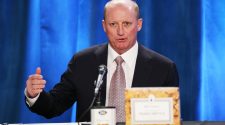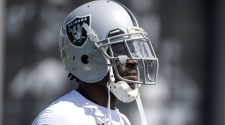What planet are they on? It’s a good question, one we might ask of any government at any time. But it feels particularly appropriate for Dominic Cummings and the government he advises, which seems to think the rules it makes for the rest of us don’t apply to its members. The chief aide’s recent decision to flout the lockdown is a case in point: he exists on a different planet to ours, where he abides by a different set of rules.
Political philosophies encompass beliefs about just a few things: equality, liberty, authority and so on. Like musical notes, this small number of ideas can be assembled in all sorts of ways. The keynotes of Conservatism are order and inequality. The song they make is about how, when everyone remains in their rightful place in the hierarchy, things are stable, harmonious and good. But the song can dramatically shift into a minor key: some bad people have messed things up; they have put things in the wrong order; we have to get rid of them and make everything great again.
Who these bad people are depends on the moment in question. Today it’s those who work with words, ideas and rules: the “politically correct” journalists, academics and writers foisting their opinions on society; the lawyers and judges subverting the peoples’ will; the government bureaucrats working in “the deep state”. Disgust at such people is one of the major forces in politics, uniting flat-earth fanatics with those who think climate change is overstated, that feminism and antiracism have gone “too far”, or that government is a scam to redirect your taxes to undeserving foreigners.
Johnson has often made noise about “reforming” the civil service, neutering the power of judges, starving the BBC and cracking down on humanities graduates. Some of this was a political tactic for building a new electoral coalition. But Cummings’ hostility to those he caricatures as “People in SW1 … babbling about gender identity diversity” is real. Conservatism is in part a rejection of abstract ideas such as human rights, equality and the European Union, in favour of more concrete things such as family, home and England: that’s why a “citizen of the world” is a “citizen of nowhere”. For a long time, Conservatives countered abstraction with celebrations of custom, habit and tradition. More recently, they contrasted it with the “natural” and “spontaneous” order of the market. Today, at least in Cummings’ world, abstract thinking must give way to The Data.
The Data – analysed by behavioural economists and evolutionary psychologists – has confirmed what Conservatives always thought: human nature is flawed. We all try to be rational but nature overrules us. People succumb to “groupthink” and primal “chimp politics”. But salvation is at hand. With the help of computation, statistics and modelling, we have the information about social and natural systems, and the capacity to understand their laws. We can’t make things perfect, but we can identify risks and manage threats: an asteroid collision, an economic crisis or, indeed, a pandemic. In this way, the traditional Conservative belief in providence is transformed into faith in artificial intelligence.
But – and this is the key thing – not everyone can make sense of the message conveyed by advanced systems such as big data and AI. In Cummings’ view, the greatest fault of those who “chat about Lacan at dinner parties” is their interest in words, interpretation and critique, when they ought to be learning about numbers, probabilities and prediction. The heroes of his political philosophy are the “super-forecasters” and the engineers able to divine meaning in The Data. It follows that the best kind of government is the one designed to find those “misfits and weirdos”, lure them off Reddit and make them over into anti-philosopher kings. In the shadow of The Data, the innumerate fools in parliament, the press and academia have nothing of value to add.
From this worldview it’s natural for Cummings to think that the rules he has helped to make don’t apply to him. His actions aren’t hypocritical – they’re entirely consistent with his conservative philosophy. Conservatism has always been, at root, a defence of inequality. It aims to separate the best from the rest and ensure that the best are on top. The line dividing sheep from goats can be drawn in many places: between older and younger, entrepreneurs and wage-earners, hardworking families and idle benefits cheats, natives and foreigners.
Cummings draws this line between his kind of clever people who understand the world and the rest of us who are just guessing. And because of our herding behaviour and suboptimal decision-making, we the people are why Cummings thinks that people like him need to be in government. Through The Data, government can know us intimately. It can know exactly what we want, thanks to the information we freely give away online. And it can communicate back to us – unhindered by biased reporters. ‘“We’re particularly interested in deep experts on TV and digital,” said Cummings when advertising for new advisers, “people who have worked in movies or on advertising campaigns. There are some very interesting possibilities in the intersection of technology and storytelling.” The priests of The Data will work out what needs to be done, what we need to be told, and how we should be told it. Then we will do what The Data dictates.
Does Cummings think he is better than the rest of us? Of course he does. Elites never believe the rules they have divined apply to themselves. We who aren’t gifted must do what The Data says. But those who lead us – people like Cummings – have to make the hard calls and decide who to sacrifice in the battle to protect us from our own imperfections. Naturally, people like that can measure their own risks and, as he insisted in his press conference, exercise their own judgment. Those who make the rules cannot be bound by them, especially in what they can declare an “exceptional situation”. We shouldn’t be so crass as to criticise them or, worst of all, “politicise” what they do.
It is likely that we have at least four more years of this government. If Cummings remains in post, I want to see how his experiment plays out. I want to see what, in the end, The Data tells us. Will it show that he was its true prophet? Or will it confirm that he is just like the rest of us: vain, rash, a herd animal – another humanities graduate playing instinctive “chimp politics”? My intuition is that you don’t need to be a super-forecaster to make a good guess.
• Alan Finlayson is professor of political and social theory at the University of East Anglia

















